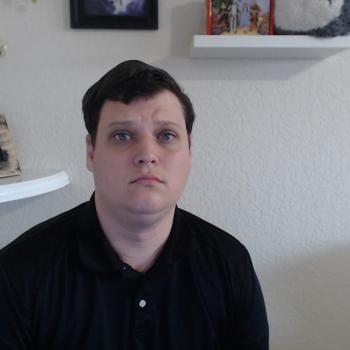We live in a pluralistic society that, while it has a long way to go, has reached a general consensus that we need to treat one another with tolerance at the bare minimum.
But when Latter-day Saints call for tolerance, we are often met with a simple “no.”
What is strange is that this refusal of tolerance often comes from those societal quarters that not only values tolerance but places it on a pedestal as the guiding principle of their belief and politics.
The rationalization for this hypocrisy is surely familiar to anyone of faith who has asked for tolerance, “We shouldn’t tolerate those who are intolerant.”
Where Does “Intolerance for Intolerance” Come from?
This idea is often phrased as the “paradox of tolerance” and corrupts the writing of Karl Popper, an (among other things) political philosopher defending liberal democracy.
His book “The Open Society and Its Enemies,” written during World War II, attacks what he saw as the philosophical underpinnings which justify totalitarianism from Plato to Karl Marx.
In one of the notes, he defines the paradox of tolerance: “If we extend unlimited tolerance even to those who are intolerant . . . then the tolerant will be destroyed, and tolerance with them.”
Or at least that’s how it’s often quoted by those hoping to weaponize the idea. Popper’s full note, reprinted below, suggests that without rational argument, tolerating intolerance will destroy itself.
“If we extend unlimited tolerance even to those who are intolerant, if we are not prepared to defend a tolerant society against the onslaught of the intolerant, then the tolerant will be destroyed, and tolerance with them. — In this formulation, I do not imply, for instance, that we should always suppress the utterance of intolerant philosophies; as long as we can counter them by rational argument and keep them in check by public opinion, suppression would certainly be unwise. But we should claim the right to suppress them if necessary even by force; for it may easily turn out that they are not prepared to meet us on the level of rational argument, but begin by denouncing all argument; they may forbid their followers to listen to rational argument, because it is deceptive, and teach them to answer arguments by the use of their fists or pistols. We should therefore claim, in the name of tolerance, the right not to tolerate the intolerant.”
It’s also important to note that in Popper’s calculation, it was only the intolerance of tolerance itself which posed a threat. This is much different than how the idea is weaponized against Latter-day Saints where it means intolerance of anything poses a threat to tolerance.
Many later scholars, such as John Rawls or Michael Walzer, who have worked on this question include similar caveats.
But many armchar philosophers, like in this example, have thrown out the nuance, instead formulating the idea like this:
“It’s really just a rule with one exception. It goes like this:
- A tolerant society should be tolerant by default,
- With one exception: it should not tolerate intolerance itself.”
What is Tolerance?
One of the primary difficulties with this question is understanding of what exactly intolerance looks like.
This question can be controversial, but let’s start with what everyone agrees:
- Violence
- Defamation
- Prevention of speaking
Here are some areas that most people agree on:
- Losing jobs
- Losing housing
- Boycotts
- Denial of service
This seems to be the bare minimum requirement to be viewed as tolerant of a group or individual.
If you believe Muslims shouldn’t be able to work jobs in the US, then you can’t reasonably suggest that you are tolerant of them.
If this seems tough, because how could I give those things to FILL IN THE BLANK group that is an existential threat to our society, then welcome to tolerance. Obviously, it’s tough.
Now, there can be legitimate reasons to be intolerant. If you don’t pay rent, then you’ll lose your home, because your landlord is intolerant of delinquency.
When we speak of social tolerance, we are talking about being tolerant of people because of their identity, beliefs, or associations. If that same landlord kicked you out because you attended a Friday Mosque, they would be intolerant of Islam. And that’s problematic.
Tolerance vs. Acceptance
One of the difficulties in this conversation is the conflation of tolerance and acceptance.
All groups should be able to create boundaries for what defines who they are. The Vegan Society, for example, should be able to dictate that its members or employees not, you know, eat meat.
Does this mean the Vegan Society is intolerant of meat-eaters? No.
As long as they don’t do anything on the list of intolerant behaviors, they are perfectly tolerant. They can even provide scholarships to only vegans, they can petition their government representatives to legislate against meat eating, they can criticize meat-eaters, etc.
The Vegan Society may not accept meat-eaters, but that is a far cry from not tolerating them.
Other groups can change their level of acceptance without changing their level of tolerance. Take the Audubon Society, for example. While their mission is to protect birds, they have become increasingly accepting of hunters because of their shared goal of conservation.
This distinction preserves an essential aspect of tolerance. We must tolerate other people creating lifestyles and organizations to support those lifestyles that are by definition exclusionary. You can’t create an exercise club that doesn’t exercise.
The Tolerance Paradox in Action
I live in San Antonio, where the city council recently voted to prevent Chick-fil-A from operating in our local airport. This is a classic example of the tolerance paradox in action. City Councilman Robert Trevino explained his vote, “San Antonio is a city full of compassion, and we do not have room in our public facilities for a business with a legacy of anti-LGBTQ behavior.”
This is a pretty simple example 1) San Antonio refuses to tolerate Chick-fil-A 2) Because Chick-fil-A is intolerant of LGBT+ causes.
He went on to explain, “Everyone has a place here, and everyone should feel welcome when they walk through our airport.” That is, we cannot be tolerant if we tolerate intolerance.
The donations that triggered the San Antonio vote were for three organizations:
- The Salvation Army
- Fellowship of Christian Athletes – A group that runs youth sports camps
- Paul Anderson Youth Home – a Christian based rehab for troubled teens
These groups all tolerate LGBT+ individuals in society. None have called for violence or silence of LGBT+ causes. None are even on the Southern Poverty Law Center’s List of anti-LGBT extremist group list, a list that has been often criticized for targeting moderates.
So what San Antonio has said, in essence, is that “Everyone has a place here,” except for Chick-fil-A, or anyone else who has ever donated to the Salvation Army. And while Councilman Trevino said that “everyone should feel welcome,” by targeting Chick-fil-A he has clearly made everyone who shares their values not feel welcome.
This feels so silly because the idea of tolerance has been extended too far. Being tolerant shouldn’t mean that everyone always feels welcome everywhere. There’s no way that can be the case for everyone. People are simply too different, with values that are too unique. If you force someone to make someone else feel welcome, then it is a greater offense against tolerance, because you are preventing them from speaking at the threat of violence or loss of job or home.
This is the conundrum that the Southern Poverty Law Center has found itself in. They are rightfully concerned about anti-Muslim bigotry. But they swept up activists who were working towards a more tolerant Muslim world such as Ayaan Hirsi Ali and Maajid Nawaz labeling them anti-Muslim extremists because their rhetoric was rude and unwelcoming.
When you try to extend the idea of tolerance so far that you are then demanding others to accept certain ideas, you are then the very thing that you tried to stop.
The SPLC decided it was better to take that list down. No kidding.
Tolerance vs. Acceptance in Action
There are some who wish for not only universal tolerance but universal acceptance.
And if that’s a future they believe in, I hope that they work as hard as possible to advocate for it. But I can’t agree. And neither, I think, can most people. I have a lifetime of experience and values and it informs what I believe is valuable. I can’t, in good conscience, work against those principles that I believe will best benefit our society and country.
And that’s okay.
That’s why tolerance is important. We can tolerate that others will have deeply different ideas about the nature of the world and what’s valuable, and allow one another to live in peace, without having to give up on our own deeply held principles.
So let’s look, for example, at the organizations that Chick-fil-A has donated to.
The Fellowship of Christian Athletes is an organization that I have my own problems with. Their definition of Christian is extremely narrow. And they have a policy of excluding Latter-day Saints from their ranks. They also do not hire individuals who are in same-sex relationships.
In the eyes of FCA, we both live our lives in ways that they do not accept.
But the FCA has never promoted violence against either of us. They have never tried to shut down our voices. They have never tried to get us fired from our jobs.
And if I insisted that they include Latter-day Saints in their ranks, I would be forcing them to change their fundamental idea of what it means to be a Christian. And that would be much less tolerant than just starting my own Fellowship of Other Christian Athletes, and allowing one another to continue to operate in peace.
Part of the problem is the conflation of private and government institutions. Government institutions need to not only be tolerant but accepting of all. It’s an issue of absolute fairness.
But on the other hand, making it so that people can’t start private organizations with internal values that don’t line up with your own is a form of intolerance.
Sin and Tolerance
What exactly is it about Latter-day Saints or the organizations Chick-fil-A donated to that make people claim they are being intolerant?
Is it that the Church doesn’t support same-sex marriage? No, virtually every candidate for the Democratic presidential nomination held that position seven years ago, and they’re tolerating them just fine.
Is it that the Church does not allow LGBT+ individuals to participate in the church? No, that’s simply factually inaccurate.
Is it anything from the intolerance list such as violence, defamation, or loss of housing? No.
So then why? Because the Church continues to affirm that sex outside of marriage is a sin, and that marriage is between a man and a woman.
The word sin is common enough that you might believe it’s a universal concept. But it certainly isn’t.
While there are a few world religions with similar concepts, the Western World’s idea of sin comes from the Jewish tradition of offending God or your fellow man. And the Christian tradition which insists that Jesus is necessary to be forgiven for those sins.
But the concept of sin has long been on the decline in the Western World. In 1946, Pope Pius XII said, “Perhaps the greatest sin in the world today is that men have begun to lose the sense of sin.”
And in 2008, Pope Benedict XVI updated that the modern world was “losing the notion of sin.”
When I lived in Houston, the largest church in the city was run by Joel Osteen. In a famous interview with Larry King, he was asked about using the word sin or sinner. “I never thought about it,” he said.
This has made it so that sin is no longer a shared reference. It is now part of the diverse tapestry of this country that we need to be tolerant of.
What feels frustrating for me, and many other Christians is that the concept of sin is not exclusionary, its expansive.
Recognizing that you are a sinner is a foundational principle to many Christian faiths, mine included. If you want to be part of the Church of Jesus Christ, you need to recognize that you sin. So claiming that a certain sin is intolerant of a group fundamentally misunderstands the religious foundation of the concept.
There are thousands of LGBT+ Latter-day Saints who have found that the world view the church espouses works for them, and they choose to remain in the Church. For an outsider to come in and declare that they must give up the principles that are working for them in order to be worthy of tolerance (that is free from violence, defamation, lack of housing, etc.) should disturb you.
It may not make sense to you why someone would create a group that would have that social norm. It doesn’t have to. That’s what tolerance means.
And if your idea of tolerance can’t withstand a worldview that includes sin, a major concept of a major world religion, then your idea of tolerance is pretty worthless.
The Unique Position of Latter-day Saints and Tolerance
Today Latter-day Saints are far from the most persecuted group in the United States. Largely because so many people have given us a chance by tolerating us, we have gone on to earn their respect and often their acceptance.
But those who mock Latter-day Saints as having a “persecution complex” are also missing the mark. Hate crimes against Latter-day Saints are at their highest level since they began being tracked. Three LDS chapels have likely been the victim of arson this year.
Where were the calls for tolerance when Johnny Townsend said Mormons Worship a Nazi God in a major newspaper? Anywhere? They published another article from him Sunday.
When anti-Mormon defamation was vandalized across a Utah highway surely no one spent an article rationalizing it? But of course, that’s exactly what happened on Patheos this January.
Where were the calls for tolerance when Latter-day Saints lost their jobs because they advocated for their faith in the public square?
There are clear articulable cases of intolerance against Latter-day Saints regularly.
This doesn’t make us unique, but in cases where we are the victim, we shouldn’t shy away from insisting on tolerance either. The difference is that in so much public discourse we are told we should not expect it, after which they cite the tolerance paradox.
For most of our history, we have been excluded, stigmatized, othered, because our beliefs were too odd or foreign to be tolerated. But just as tolerance took on preeminence in post-WWII western democracies, Latter-day Saints were told they did not deserve it because of the tolerance paradox.
This is a neat trick to justify continuing to view Latter-day Saints with sneering disregard rather than as full partners in the American experience.
What’s interesting is that this same standard has not been applied equally. I think many were surprised by news last month that the United Methodist Church reaffirmed its opposition to same-sex marriage and LGBT+ clergy? Reaffirmed, that means it has been a long-standing policy. Yet when you think of anti-LGBT religions in the United States the Methodists aren’t what pops into mind, it’s the Latter-day Saints.
Which church is the victim of a decade long effort to strip away the Church’s tax exempt status because it doesn’t support same-sex marriage? Not the Methodists.
Why the unequal intolerance? The reason is simple, blaming LGBT+ rights is nothing but a pretext. For many Americans, Latter-day Saints believe in weird things, we are not one of them. They don’t want to tolerate our strange views and ideas. So if the tolerance paradox is the key to allow them to feel comfortable with their prejudice, they’ll take it no matter whether it stands up to scrutiny.
The bottom line is you cannot hang onto the delusion that tolerance is good for me but not for thee.
You can certainly believe that Latter-day Saints are wrong about the nature of sexuality. You can even be a tolerant person and believe that. But you can’t be a tolerant person and say that Latter-day Saints don’t deserve tolerance. It’s nothing more than a backward repackaging of two-hundred-year-old prejudices.












